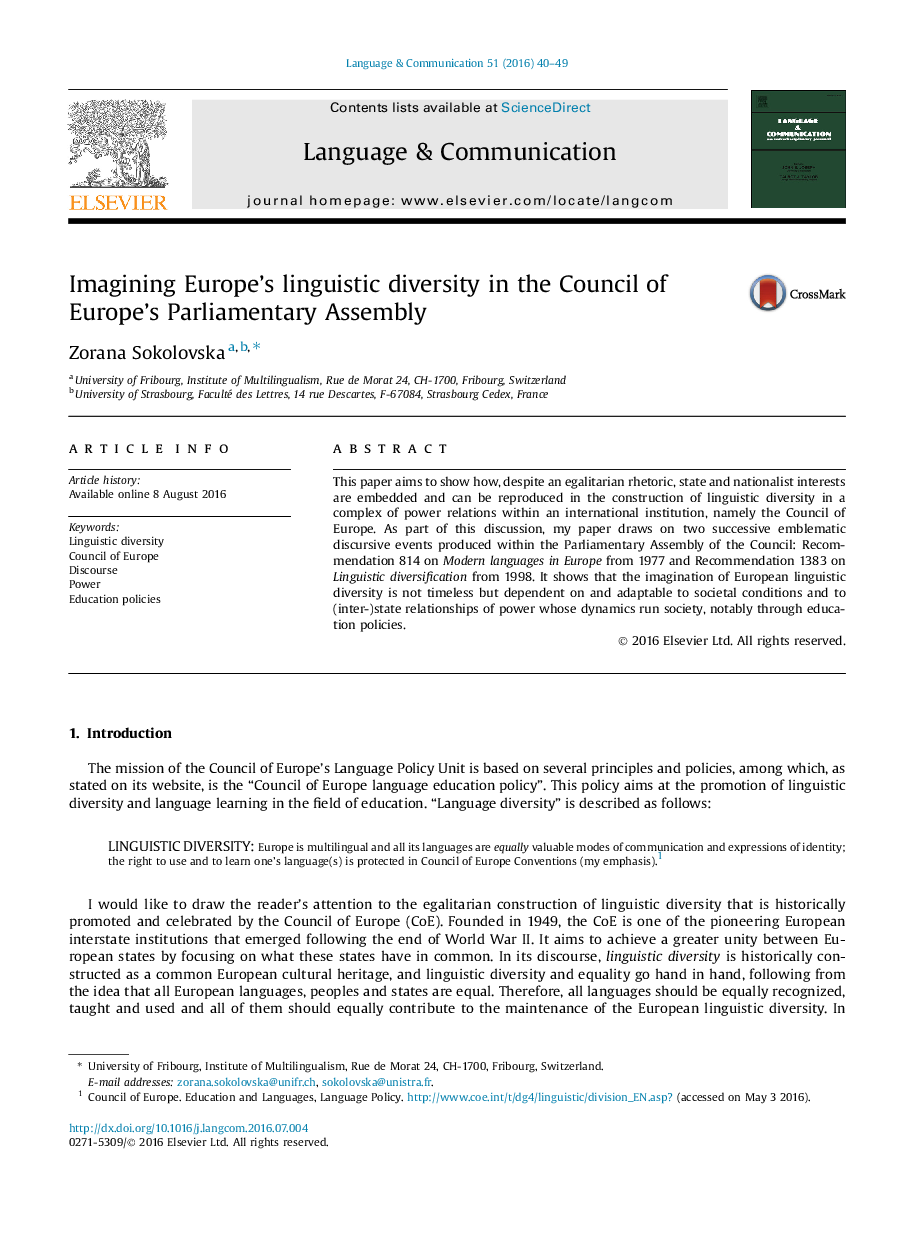| کد مقاله | کد نشریه | سال انتشار | مقاله انگلیسی | نسخه تمام متن |
|---|---|---|---|---|
| 5042900 | 1474914 | 2016 | 10 صفحه PDF | دانلود رایگان |
- Within the Council of Europe, European linguistic diversity is discursively constructed as egalitarian.
- This construction is dependent on and adaptable to societal conditions and to (inter-)national relationships of power.
- Inequalities are discursively reproduced by (mis)recognizing and (de)valorizing specific languages and language practices.
- The institutional discourse is implemented, but also controlled on the terrain of education.
- The discourse constructs and legitimates the Council of Europe as an international institution and authority in the domain.
This paper aims to show how, despite an egalitarian rhetoric, state and nationalist interests are embedded and can be reproduced in the construction of linguistic diversity in a complex of power relations within an international institution, namely the Council of Europe. As part of this discussion, my paper draws on two successive emblematic discursive events produced within the Parliamentary Assembly of the Council: Recommendation 814 on Modern languages in Europe from 1977 and Recommendation 1383 on Linguistic diversification from 1998. It shows that the imagination of European linguistic diversity is not timeless but dependent on and adaptable to societal conditions and to (inter-)state relationships of power whose dynamics run society, notably through education policies.
Journal: Language & Communication - Volume 51, November 2016, Pages 40-49
